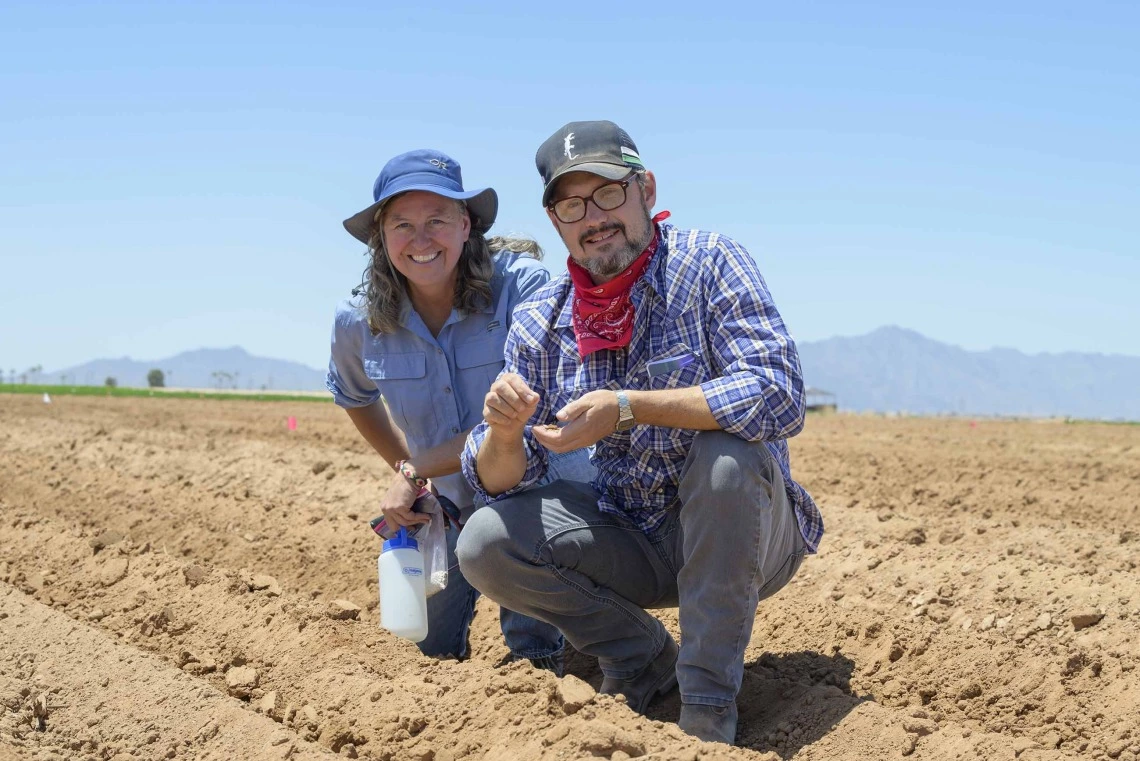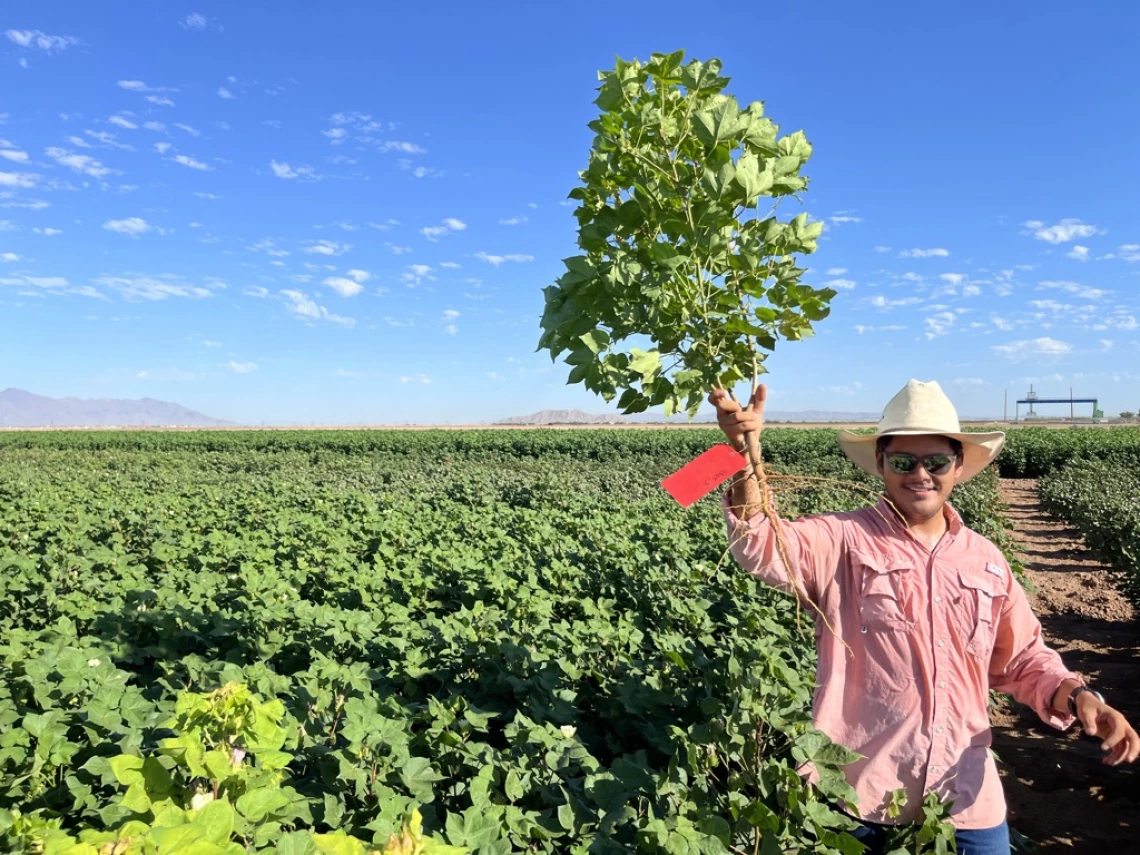Agroecosystem Research in the Desert
At the intersection of agricultural production and holistic ecosystem science.
Arizona, the climate of tomorrow - today.
Hotter temperatures and drought are rapidly reshaping the world we live in and directly threaten the food systems we rely on. Currently, arid lands represent 41% of Earth’s land surface, are home to 30% of the global population and produce over 60% of the world’s food.
Harnessing Arizona's expertise
At the Agroecosystem Research in the Desert (ARID) Center, we are on a mission to transform the future of arid land agriculture. Agroecosystems, where nature and agriculture converge, are dynamic systems that blend biodiversity, energy flows, and human innovation. At the ARID Center, we’re pioneering solutions that optimize these intricate systems, ensuring that even the harshest deserts can nourish generations to come.
Arizona is developing sustainable strategies to ensure that we can continue to grow the food we need, even as conditions change. The efforts here are helping to shape how we can all adapt to a future where water scarcity and more extreme weather may become the norm. By studying the challenges of today’s environment, we’re creating sustainable agricultural solutions for tomorrow, ensuring a resilient food supply in a changing world.
News, breakthroughs and profiles in science
Explore the work we're doing to put science to work to develop solutions to the challenges facing arid land agroecosystems.
Wall Street Journal | How a 30-Ton Robot Could Help Crops Withstand Climate Change
Learn how ARID is using the world’s largest agricultural robot to understand how crop plants cope with extreme heat and drought conditions.
Scripps National News | Searching for solutions to drought
Learn how ARID researchers and other University of Arizona experts are working together to find solutions to drought.
Arizona Health Sciences News | Finding a nutritious solution to a climate change challenge
Researchers are addressing food insecurity for people around the world by studying a desert bean that needs little water and withstands harsh environments.
CALES Science Communications | Desert field research aims to shed light on the mechanisms behind plant water regulation
Graduate students seek to better understand water regulation in plants through field research.
Phytobiomes | The Root Endophytic Microbiome Shifts Under Drought in High-Performing Sorghum
A study exploring how the microbiome of sorghum plants can influence drought resiliency.
Irrigation Science | Monitoring cotton water status with microtensiometers
A study using novel sensors that can be used to improve cotton irrigation efficiency and scheduling.
Meet the team
Our scientific advisory board is comprised of leading experts in ecology, data science, soil health, plant physiology, fungal ecology, and plant science. Their combined expertise represents the transdisciplinary approach ARID is taking to address the critical challenges facing arid land agriculture.
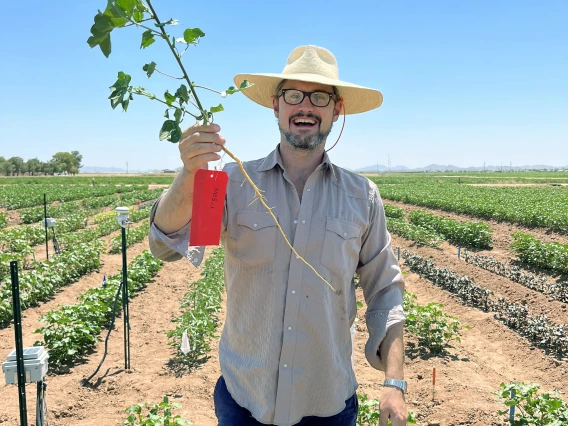
Duke Pauli, Director
Associate Professor, School of Plant Sciences
Research expertise: My research program focuses on understanding the natural genetic and phenotypic variation present in plant populations and how this can be leveraged to develop climate resilient crop cultivars capable of withstanding hotter, drier environments.
Area of research in ARID: I am focused on dissecting and understanding the physiological mechanisms and genetics responses that plants use to cope with drought stress.
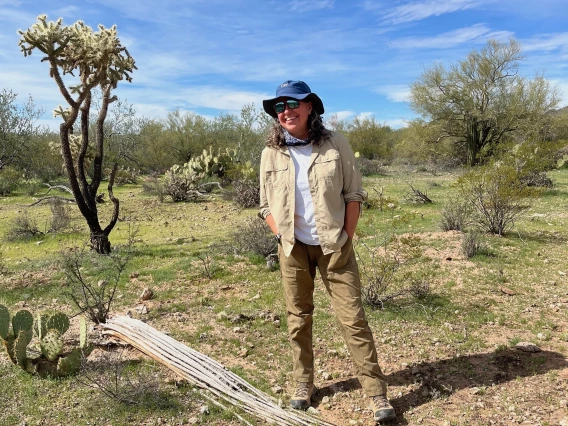
A. Elizabeth (Betsy) Arnold
Interim Director, School of Plant Sciences
Research expertise: I study plant microbiomes, bringing together organismal biology, systematics, functional traits analyses, and -omics to understand how plant traits are extended, complemented by, and determined by microbial symbionts in soils and plant tissues.
Area of research in ARID: I focus on arid land microbiomes and the ways in which they improve plant resilience to stress, linking principles from the ecology of wild systems to agroecosystem dynamics.

Yang Song
Assistant Professor, Department of Hydrology and Atmospheric Sciences
Research expertise: My research focuses on advance our understanding and predictive power of the role of the biotic components (vegetation, microbial communities, and humans) of the Earth system in land and climate interactions.
Area of research in ARID: I am focused on developing numerical tools for evaluating the effects of agriculture practices and bioengineering on the crop productivity under abiotic stresses.
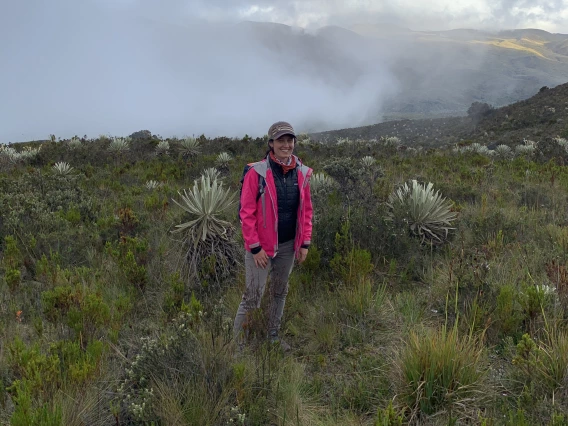
Rachel Gallery
Professor, School of Natural Resources & the Environment
Research expertise: My research program investigates the ecological responses of soil microorganisms to climate warming, wildfires, and drought - and what this means for carbon nutrient cycling in soils.

Eric Lyons
Professor, School of Plant Sciences
Research expertise: My research program focuses on developing computational systems and tool sets for life science research. I aim to lower the barrier to accessing cutting-edge algorithms and computing resources so researchers spend more time discovering biological insights.
Area of research in ARID: Fix people's computers and networks when they don't connect to the printer. (Providing guidance and recommendations for data analysis and computing.)
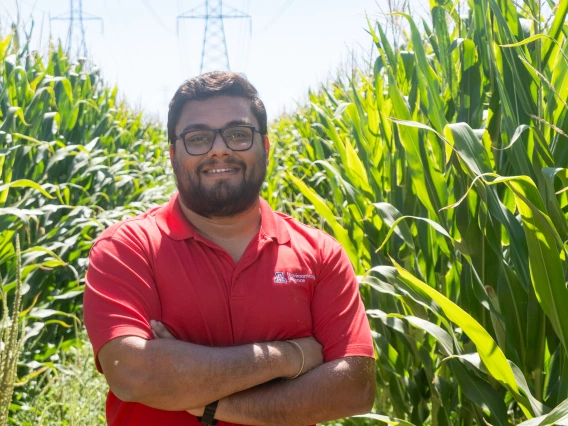
Debankur Sanyal
Assistant Professor and Extension Specialist, Soil Health
Research expertise: My research program aims to study soil biogeochemical dynamics, which can help find sustainable and regenerative solutions to improve soil health in arid and semi-arid agroecosystems, bolstering global food security.
Area of research in ARID: My research will investigate innovative soil management techniques for potential crop quality, productivity and ecosystem benefits.
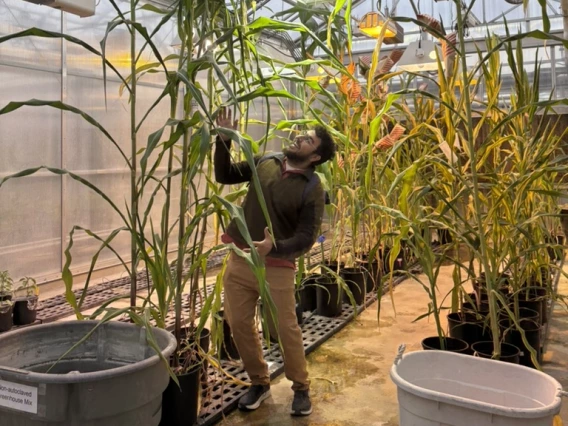
Alonso Favela
Assistant Professor, School of Plant Sciences
Research expertise: My research program focuses on understanding the interactions between plants, humans, and the microbial communities that cycle nutrients within soils. I am particularly interested in rewilding plant-microbe interactions in agroecosystems, with the aim of reintroducing and conserving the important role of soil microbes within these systems.
Area of research in ARID: I am interested in understanding how we can best manage agroecosystem soil microbial communities via ecological interactions to benefit society.

Giovanni Melandri
Assistant Professor, School of Plant Sciences
Research expertise: I am a crop molecular physiologist and my lab studies stress-induced metabolic and oxidative stress changes that occur during the development of crops grown in the field under a large spectrum of environmental stressors, with a special focus on heat and drought.
Area of research in ARID: I am focused on metabolic and oxidative stress profiling of crop diversity panels grown in the Arizona low desert.
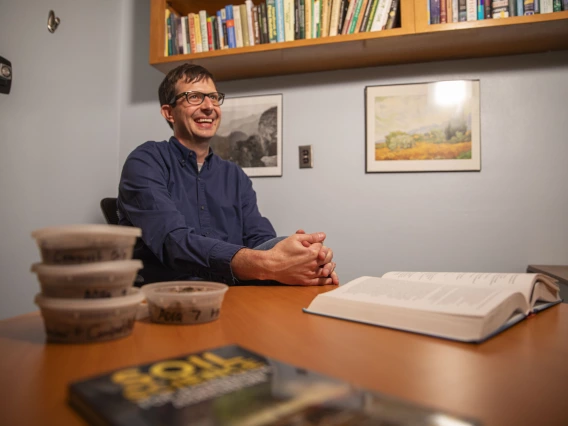
Joseph Blankinship
Associate Professor, Department of Environmental Science
Research expertise: My research program focuses on understanding ways to assess and enhance agricultural soil health in arid and semi-arid regions.
Area of research in ARID: My soil health work focuses on plant-microbe interactions, organic matter stabilization, nutrient-use efficiency, greenhouse gas fluxes, disease suppression, crop nutrient density, and salinity mitigation and adaptation.

